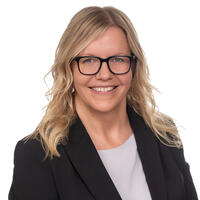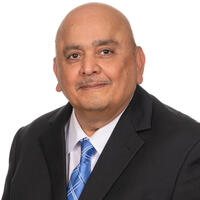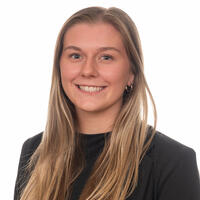Advancing Patient Care Through Biomechanics and Engineering
At the Anil Bhave Biomechanics & Engineering Labs (ABBEL) Research Division, we are dedicated to improving patient care by applying biomechanics and engineering principles. Our research identifies, measures and evaluates movement-related impairments to enhance diagnoses, personalize treatment plans and develop innovative medical devices.
Using state-of-the-art equipment and techniques, we study human movement and its impact on health. Our multidisciplinary approach combines engineering, biomechanics and clinical expertise to drive transformative advancements in care.
Through collaborative research, consultation and mentorship, we train students, residents and clinicians, empowering the next generation of healthcare professionals. By shaping best practices and pushing the boundaries of medical device development, we aim to enhance mobility, improve patient outcomes and transform healthcare.
Mission Statement
Our mission in the ABBEL Research Division is to enhance patient care by applying principles of biomechanics and engineering to identify, measure and evaluate movement-related conditions. Through this innovative approach, we aim to enable earlier diagnoses, improve treatments and develop advanced devices to optimize patient outcomes.
Objectives:
- Utilize state-of-the-art equipment to provide precise, real-time assessments of movement patterns for early detection of health concerns.
- Educate and train students, residents and clinicians in the application of biomechanics to equip future generations of healthcare professionals with cutting-edge knowledge and skills.
- Foster collaboration with experts from other healthcare entities, academic institutions, industry consortia and government agencies to advance best practices in rehabilitation medicine, orthopedics, pediatrics, engineering and neurology.
- Offer consultation and mentorship to guide clinicians in integrating biomechanical insights into patient care. · Inform best practices by translating biomechanical data into actionable insights that improve clinical outcomes and advance treatment protocols.
- Contribute to global knowledge by developing comprehensive normative data on various movement skills throughout the lifespan.
Our Vision
Our vision is to serve as an international leader in transforming healthcare by advancing the integration of biomechanics and engineering into clinical practice. We aim to improve lives worldwide by fostering early detection, personalized treatment and innovative medical devices while shaping the future of care through research, education and collaboration.
Wasserman Gait Lab
Principal Investigator: Anil Bhave, PT
In our Wasserman Gait Lab, we assess gait kinetics and kinematics in patients with walking- and running-related impairments using advanced motion capture technology. The lab supports both clinical and research assessments, including grant-funded projects. Our state-of-the-art equipment allows us to capture precise data on how patients move, providing detailed insights into their locomotion patterns, balance and posture. By analyzing these metrics, we diagnose gait and running abnormalities, track rehabilitation progress and develop personalized treatment plans. Whether addressing neurological conditions, musculoskeletal problems, sport injuries or other movement-related challenges, our lab offers a comprehensive, data-driven approach to understanding and improving mobility and function, with the goal of enhancing patients’ quality of life and independence.


Pediatric Motor Development Lab
Principal Investigator: Jordan Wickstrom, PhD
Our Pediatric Motor Development Lab conducts cutting-edge research on the motor development of young children, with a special focus on infants. Using top-of-the-line equipment—such as force plates, wearable sensors and pressure mats—we measure movement patterns as children progress through gross motor milestones. Our research aims to improve early detection of various diseases and disorders by developing innovative approaches to track a child’s progress. Unlike traditional standardized assessments, our methods provide more personalized and precise ways to monitor developmental milestones and treatment responses, ultimately enhancing mobility and function.
3D Printing Services
We utilize advanced 3D scanning and printing technology to create custom devices designed for each patient’s rehabilitation needs. This innovative approach enhances comfort, improves mobility and accelerates recovery. From orthotics and prosthetics to supportive braces and adaptive equipment, we work closely with healthcare professionals to deliver high-quality devices that address specific requirements. Whether a patient is recovering from surgery, managing a chronic condition or in need of specialized support, our 3D-printed products provide an efficient, cost-effective approach to rehabilitation, helping them regain independence and improve their quality of life.


Jordan Wickstrom, PhD
Clinical Research Director
MDL Principal Investigator

Anil Bhave, PT
Clinical Director, Ortho Rehab
Gait Lab Principal Investigator

Roland Starr, MS
Senior Rehabilitation Scientist
Gait Lab Engineer

Kym Doll, DPT
Gait Lab Clinician

Scott Brown, MD, MA
Rehab Department Chief
Medical Director

Curt Cunningham, PT
Rehabilitation Services Director

Emma Leone, MS
MDL Researcher

Allie Chenowith, BS
Postbaccalaureate Researcher
Collaborators
- APDM Wearable Technologies
- BodiTrak
- Boston University
- Buffett Early Childhood Institute
- College of Saint Mary
- Creighton University
- Duke University
- Iovera
- Kennedy Krieger Institute
- MedStar National Rehabilitation Hospital
- MirrorAR
- Mt. Washington Pediatric Hospital
- National Institutes of Health
- Nebraska Wesleyan University
- Oregon Health & Science University
- Organization of Autism Research
- Phelan-McDermid Syndrome Foundation
- Texas A&M University
- The George Washington University
- The Ohio State University
- Thomas Jefferson University
- University of California, Davis
- University of California, Irvine
- University of California, San Francisco
- University of Nebraska at Lincoln
- University of Nebraska at Omaha
- University of Nebraska Medical Center
- University of Nevada, Las Vegas
- University of North Carolina at Greensboro
- University of Pittsburgh
- University of South Carolina
- US Centers for Disease Control and Prevention
- University of California, Irvine University of California, San Francisco
- World Health Organization
